On 30 November 2010, a 39-year-old Pakistani national named Muhammed Ather "Tony" Butt was detained with his Thai girlfriend, Sirikalya Kitbamrung, as they were crossing into Laos from the north-eastern Thai province of Nong Khai. Later that same day, officers from Thailand's Department of Special Investigations arrested a second Pakistani, Zezan Azzan Butt, 27, in the Rat Burana district of Bangkok. At about the same time, on the other side of the globe, Spanish police were swooping on a series of addresses in Barcelona, arresting six Pakistanis and one Nigerian.
The raids were the culmination of a major joint operation, codenamed Alpha, between Thai and Spanish investigators, prompted by the discovery that a suspected member of the al-Qaida-inspired terror cell responsible for several attacks in Madrid – including the 2004 M-11 train bombings, which killed 191 people and left 1,800 injured – was travelling on a false passport.
Information from that suspect would lead, several years later, to the arrest in September 2009 of an Iranian-born Briton, Ahboor Rambarak Fath, at Bangkok's Suvarnabhumi airport – and, eventually, to Tony Butt. Stopped as he got off a flight from Spain, Fath was carrying a bag of 103 stolen European, Canadian and Israeli passports destined, he confessed, for the veritable "small forgery factory" that police found at Butt's apartment in the hours after his arrest.
In one room of the flat, an unnamed DSI agent told the Bangkok Post, officers discovered computers, a high-definition scanner and printer, and more than 1,000 stolen passports, photographs and counterfeit data pages for EU, Canadian, Chinese and Israeli passports, plus assorted sets of US and Schengen visa stickers and stamps.
Butt was, in the words of DSI deputy director-general Narat Savetnant, "the kingpin" of a major international gang that stole and falsified passports and then sold them to international criminal groups involved in arms trafficking, human trafficking, illegal immigration – and terrorism. Beside the Madrid bombers, the gang also allegedly supplied passports to the Pakistan-based Lashkar-e-Taiba group, accused of plotting the 2008 Mumbai attacks that left 164 people dead and more than 300 injured, and to Tamil Tiger separatists in Sri Lanka.
Theft of passports in Thailand – and particularly in Phuket – is a 'regular occurrence'
There is, of course, no evidence that Malaysia Airlines Flight MH370, which disappeared Friday 7 March just over an hour into its flight from Kuala Lumpur, Malaysia to Beijing, was the victim of a terror attack. But news that two of the passengers on the flight were travelling on passports stolen in Thailand – one belonging to Italian Luigi Maraldi, who lost it last August when he left it as collateral for a motorbike rented in Phuket, and the other to Austrian Christian Kozel, who reported his lost in the same area some 18 months earlier – has focused attention on the country's booming trade in stolen and falsified passports.
Some, certainly, have ended up in the hands of terrorists. In June 2012, the month that Butt was sentenced to 15 years in jail, the DSI smashed another major counterfeiting syndicate, this one accused of issuing some 3,000 falsified passports and visas over the five years of its existence, two of them to Iranians convicted of carrying out a series of botched bomb attacks in Bangkok in February 2012, supposedly aimed at Israeli diplomats. (The counterfeiting gang's alleged ringleader, Iranian-born Seyed Paknejad, 45, was arrested but jumped bail and fled, on a fake Turkish passport, to Malaysia – where he was re-arrested last year carrying a startling 17 stolen New Zealand passports. Thailand has subsequently asked for his extradition.)
The gangs have targeted Thailand mainly because of the very large numbers of European, US and Australian holidaymakers who travel there every year. But the Bangkok Post's interview with an unnamed DSI agent quoted him as saying the country was also attractive because it is relatively easy to enter and leave; "you can negotiate with some law enforcement people"; and – importantly – some local officials have not tended to see the forgery of foreign (as opposed to Thai) passports as a particularly serious offence.
The business reportedly originated in the early 80s, when Thai criminal gangs employed hotel staff, tour guides and sex workers to steal not just tourists' traveller's cheques but also their passports, without which cheques could not be cashed. Once credit cards started replacing traveller's cheques, the gangs used the expertise they had already gained in the sophisticated techniques of document falsification to become full-service fake document providers, importing passports, driving licences and ID cards from abroad, doctoring them, and selling to anyone prepared to pay.
Two passengers on Malaysia Airlines Flight MH370 were travelling on passports stolen in Thailand
One DSI agent, Tinawut Slilapat told Bangkok expat magazine The Big Chilli in 2012 that "around 20" groups, often headed by criminals from south Asia or the Middle East, are currently engaged in various forms of passport fraud in Thailand. They use passports stolen in Thailand but also in countries such as Spain, France and Belgium, add new photographs, data pages and signatures, and sell to customers who either travel to Thailand to buy the documents or send couriers. Almost all the passports are used to commit crimes outside Thailand, Tinawut told the magazine.
He said an undoctored stolen passport – increasingly used by the gangs, who are now dealing in such high volumes that they can afford simply to wait until a potential client shows up of approximately the right age and appearance – typically sells for between $1,500 and $3,000, depending on its condition, nationality, and the number of years it has left to run. Italian, British, Spanish and other European passports fetch about $1,000, Tinawut said, while Israeli passports cost $1,500-$2,000 and Canadian can go for up to $3,000.
"There is still huge demand for passports, and identity fraud is a tool to support other criminal activities," Tinawut said. "We are talking about a very lucrative revenue source for criminal organisations." A Hong Kong-based risk consultant, Steve Vickers, confirmed to the Wall Street Journal that "counterfeiting of all sorts of identifications is very widespread, particularly out of Thailand. So it's pretty easy to pick up a stolen or a counterfeit passport."
Visitors to the south-east Asian country would certainly be advised to watch out for their passports. According to the Foreign Office, some 600 British passports were stolen there in 2012-13, making it the seventh most likely country to lose a British passport (revealingly, in light of Butt's connections, the country that tops the list is Spain, where more than 5,600 British passports were reported missing last year). A former Australian consul, Larry Cunningham, told the South China Morning Post that the theft of passports in Thailand – and particularly in Phuket – is a "regular occurrence".
Some passports were certainly lost, Cunningham said, "falling out of pockets or being genuinely misplaced. But there were also substantial incidents of passports being stolen." A quick scroll through travellers' internet forums, such as Lonely Planet, shows countless anguished stories of passports lost and presumed stolen – often from car and motorbike rental agencies. When Maraldi, who called his family to tell them reports of his death on Malaysia Airlines Flight MH370 had been greatly exaggerated, asked the bike shop where he had left it for his passport back, he was told it had already been handed over to an Italian man who "said Mr Maraldi was his husband".
But a stolen and doctored passport will only work as a travel document if nobody checks it. Both Kozel and Maraldi reported their passports as stolen and the thefts were duly recorded in Interpol's database of Lost and Stolen Travel Documents (LSTD). Created after the September 11, 2001 terror attack on New York and Washington, the LSTD database now has some 40m entries. The inter-governmental police cooperation organisation says this weekend it is searched more than 800m times a year, mainly by the US, which accessed it 250m times, the UK (120m) and the UAE (50m).
'Last year, passengers were able to board planes more than a billion times without having their passports screened against Interpol's databases'
Authorities in many other countries, however, appear to search the database far less often, or not at all.
"Last year," the agency said, "passengers were able to board planes more than a billion times without having their passports screened against Interpol's databases ... Unfortunately, few member countries systematically search these databases to determine whether a passenger is using a stolen or lost travel document to board a plane." Interpol said that in the case of Flight MH370: "No checks of the stolen Austrian and Italian passports were made by any country between the time they were entered into Interpol's database and the departure of the flight."
International border control authorities were last reminded to tighten up procedures in 2010, when an Air India Express flight crashed on landing in Mangalore and it transpired that 10 of the 158 passengers and crew on board – all of whom were killed – had been travelling on forged or stolen documents, leading to serious concerns about security checks in Dubai, where the flight originated. Ronald Noble, Interpol's secretary general, was scathing this weekend about the evident lack of any such checks when passengers boarded Flight MH370.
"Whilst it is too soon to speculate about any connection between these stolen passports and the missing plane, it is clearly of great concern that any passenger was able to board an international flight using a stolen passport listed in Interpol's databases," Noble said.
"For years, Interpol has asked why countries should wait for a tragedy to put prudent security measures in place at borders and boarding gates. Now we have a real case where the world is speculating whether the stolen passport holders were terrorists, while Interpol is asking why only a handful of countries are taking care to make sure that persons possessing stolen passports are not boarding international flights.
"If Malaysia Airlines and all airlines worldwide were able to check the passport details of prospective passengers against Interpol's database, we would not have to speculate."
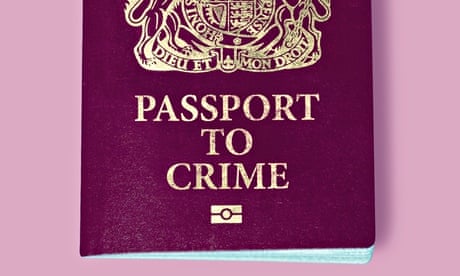
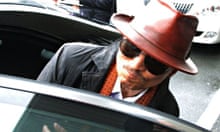
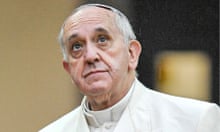
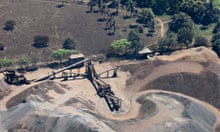
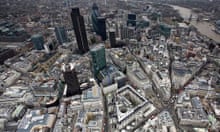
Comments (…)
Sign in or create your Guardian account to join the discussion